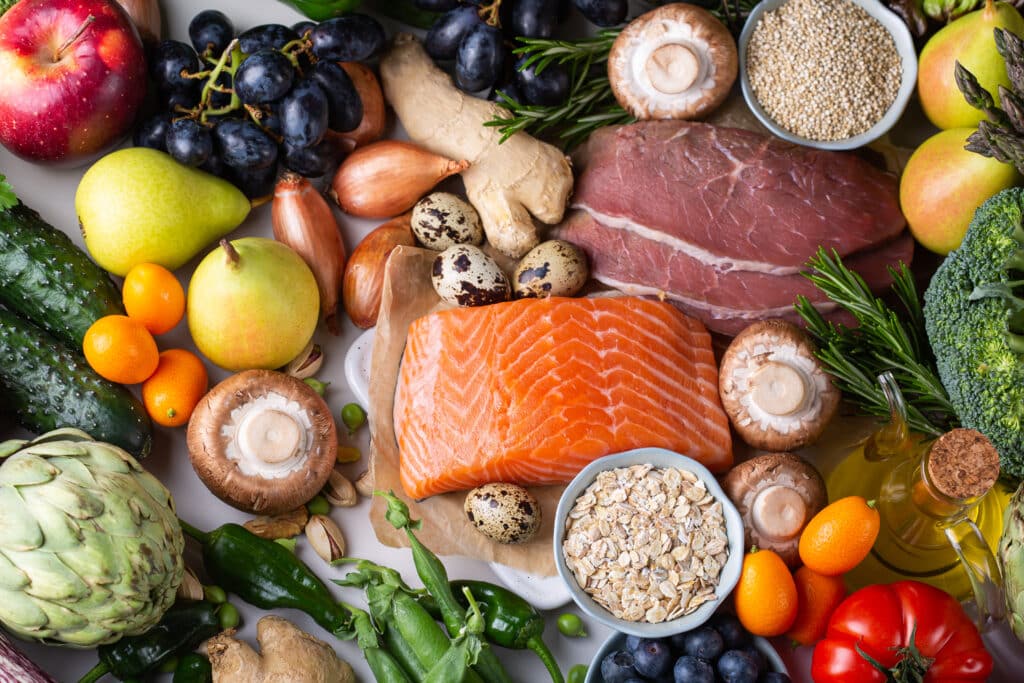The global talk about sustainable lifestyles and healthier eating has led to a significant reflection on the benefits of a plant-based diet. Before addressing the myths surrounding plant-based lifestyles, it is vital to acknowledge the broader environmental context supporting this shift.
The Environmental Imperative
Meat consumption has long been associated with environmental problems because it contributes to deforestation due to livestock farming and the significant greenhouse gas emissions related to the meat industry. Meat production is responsible for human rights abuses and land-grabbing according to Greenpeace. Moreover, fatty meat consumption may increase risks of heart diseases, cancer, and transfer of viruses from animals to humans. Whereas in the 1960s, most protein in Europe came from plants, today, up to 58% of the protein comes from animals. Research also showed that the production of 1 kg of beef protein needed 18 times more land, 10 times more water, 9 times more fuel, and 10 times more pesticides than the same amount of proteins obtained from kidney beans. With that said, a plant-based diet appears a compelling solution for a more sustainable future for us and animals.

Myth 1: Plant-Based Diets Lack Protein
One of the common misconceptions about plant-based diets is that they lack sufficient protein. Contrary to this notion, plant-based diets offer an abundance of protein from sources such as beans, lentils, nuts, and tofu. A well-planned vegetarian or vegan diet can carefully provide all the essential nutrients your body needs.
Myth 2: Being Meatless is an All-or-Nothing Commitment
Another myth to dispel is that adopting a plant-based lifestyle necessitates an all-or-nothing commitment. In reality, individuals can embrace a more flexible approach, gradually reducing their meat intake without entirely eliminating it. Flexitarian style allows for a smoother and more sustainable transition, accommodating varying preferences and easing the journey towards a plant-based diet. Today, up to 60% of people define themselves as flexitarians, so there must be something great about it!

Myth 3: Going Plant-Based is Expensive
The belief that a plant-based diet is an expensive endeavor is a common misconception that needs correction. In truth, plant-based diets can be not only nutritionally rich but also cost-effective. Staples such as beans, lentils, and whole grains form the foundation of affordable and nutrient-dense meals. Additionally, prioritizing local and seasonal produce contributes to an economically viable plant-based meal plan.
Myth 4: It’s Hard to Dine Out
The outdated myth that dining out becomes a challenge with a plant-based diet requires reassessment. Many restaurants now offer diverse plant-based options in response to the growing demand for plant-based choices. The evolving culinary offerings is making it increasingly convenient for individuals to enjoy flavorful plant-based meals outside their homes. In addition, you can always ask the servers to prepare the dish without meat or try substituting it with something else.

Myth 5: Meatless Meals are Bland and Boring
A persistent myth is that meatless meals lack flavor and variety found in their meat counterparts. In reality, plant-based cuisines offer a vibrant and diverse array of tastes and textures. From savory stir-fries to hearty vegetable curries, the options are limitless, challenging the misconception that meatless meals are monotonous. The fact is, you don’t even need to look for new recipes; replace meat with chickpeas or tofu in your favorite dish, and you’re good to go.
Conclusion
Having debunked these myths, it is clear that a plant-based diet is environmentally friendly and characterized by its diversity, accessibility, and culinary richness. By challenging these misconceptions, we empower individuals to make informed choices consistent with their values and support a healthier and more sustainable future for themselves and the planet. It is time to embrace new lifestyle choices and enjoy the tapestry of possibilities that plant-based living offers.